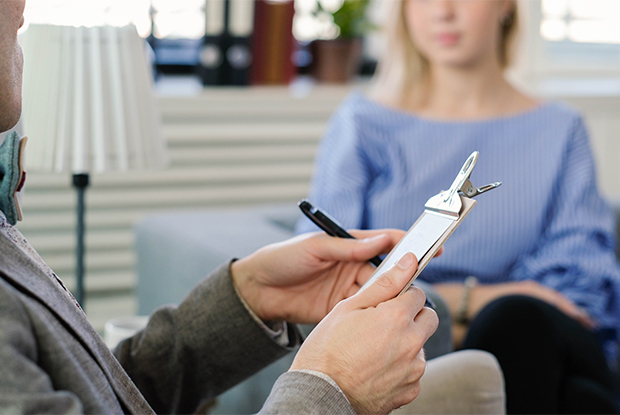Depression: There Is HOPE!

Depression of varying levels is one of the most challenging disorders that our clients face. We work creatively to find treatments and options that will help you achieve your highest level of health.
Some strategies that we use:
- Traditional talk therapy
- Lifestyle coaching focused on exercise & nutrition
- Mindfulness-based approaches
- NeuroLinguistic Programming
- UV light therapy
We never recommend clients discontinue or decrease medications. We do not give medication advice; however, we work with clients who are frustrated with medication side effects or ineffectiveness at helping depression. We also work closely with your medical professional to help monitor your depression.
Depression is a complicated disorder, and the answer to healing and recovering from depression may take a variety of methods. We believe in using every method available to help clients achieve success.
Traditional Talk Therapy
Talk therapy sessions are conducted by a Licensed Clinical Social Worker (LCSW) or other licensed professional. Talk therapy sessions are held weekly or every other week based on the needs of the client. Cognitive-Behavioral approaches are typically used to help clients further understand their depression and how negative thoughts and expectations can be harmful and deepen the client’s depression. Other approaches we use include development of self-esteem and boundary setting. Talk therapy methods are individualized based on the client’s needs and strengths. Talk therapy can be combined with other evidence-based interventions, such as lifestyle coaching and mindfulness.


Lifestyle Coaching
Lifestyle coaching is offered by a paraprofessional with advanced training in psychotherapy. Lifestyle changes, applied when the client is beginning to feel some relief from depression, can make a huge difference in the recovery stage of depression. Lifestyle changes such as exercise and appropriate balance of proteins and carbohydrate in the diet, among other changes, can help to relieve some of the symptoms of depression. Lifestyle changes also play a protective role in helping clients prevent a reoccurrence of their depression episode or depressive moods.
NeuroLinguistic Programming
NeuroLinguistic Programming (NLP) is a specialty therapy service that we offer clients who are looking for ways to improve their cognitive abilities and re-examine previous life experiences. NLP has been shown to help clients achieve a clearer mind, increased motivation, and pain reduction. NLP can be helpful in many stages of depression, and even severe depression seems to be impacted positively by NLP. Clients are finding that combining NLP with other approaches like lifestyle changes or neurofeedback can be the most beneficial.

UV Light Therapy
Some clients are finding relief of depression symptoms through the use of UV light therapy. UV lights can be bought many places, but it can be difficult to determine the appropriate use of light therapy on your own. Too much light therapy at the wrong time of day can lead to insomnia or sleeping difficulties. Our clinicians are prepared to help guide you through correct use of UV light.

Other Ways to Reduce Depression:
There are more ways to reduce depression than those discussed here. We do not have the training or personal experience to recommend all of them, such as specific medications, transcranial magnetic stimulation, or electric shock therapy. There are times that these methods are used and there is research to validate them. We can refer you to clinicians or clinics that offer these methods if your depression is not responding to the other options we offer. Most of our clients see remission of their depression through the use of therapy, lifestyle changes, neurofeedback training, or light therapy.
Depression is too complicated to have a quick fix or one approach that will work for each client. Each person is unique and experiences depression for different reasons. Different approaches work for different clients at specific times in their life. For example, a client who is too depressed to get out of bed will likely be unsuccessful at incorporating exercise into their routine, so we would not recommend that method at that point in time for that client.
We will fight for you and your health, as long as you are willing to fight with us. Never stop fighting for your health. You have the right to feel healthy, have energy, and recover from depression. There is HOPE!